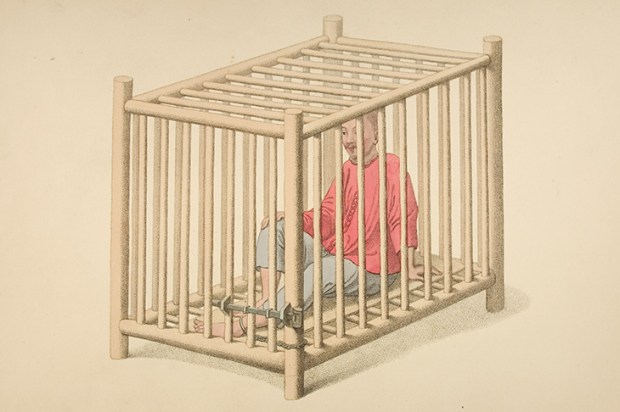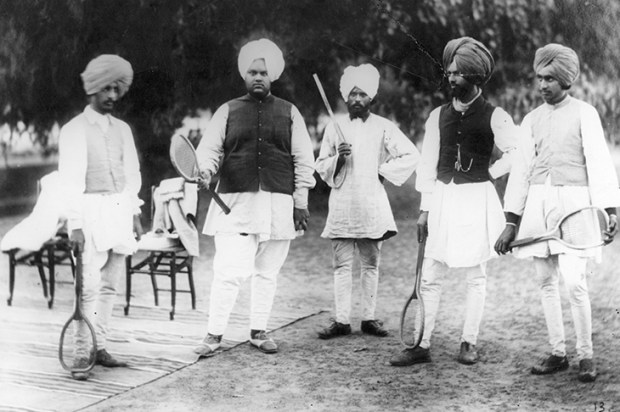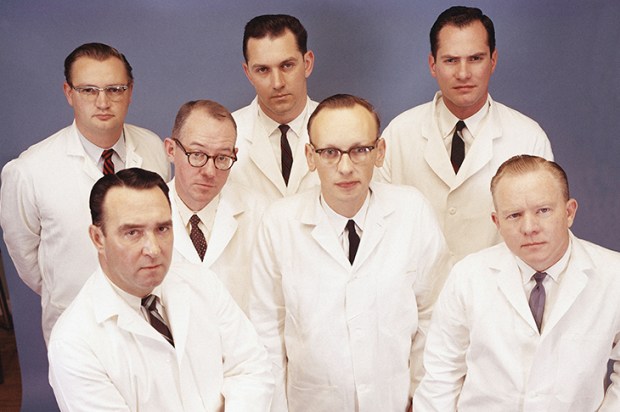Speccie reader Doug writes to ask about ‘mansplaining’. This comes from the same feminist language cauldron as ‘toxic masculinity’ (meaning all men are evil just because they are men). The Oxford records ‘mansplaining’ from 2008, and says the word means a man explaining something ‘needlessly, overbearingly, or condescendingly, esp. (typically when addressing a woman) in a manner thought to reveal a patronising or chauvinistic attitude.’ So it’s yet another hatred-filled attempt to dismiss and belittle 50 per cent of the population of the world. Feminism has now been taken over by Macbeth’s weird sisters, for whom ‘fair is foul, and foul is fair’. To which I would add that so-called ‘mansplaining’ is necessary when we are talking to someone who is stupid! (I have small grandsons, and I worry about the world they are growing up in.)
I am often asked why don’t we have an academy (or some authority) to make rules about what is right or wrong in English? The answer is: because it would never work. Evidence for this is l’Académie Française which has exactly this task and always fails to regulate the French language. Only a short while ago they published the latest edition of their big official dictionary. L’Académie Française was established by Cardinal Richelieu in 1635. It took the 40 scholars of the academy 30 years to produce the first edition of their dictionary. (Mind you, the great Samuel Johnson achieved the same in England in just nine years – working alone!) The 8th edition came out in 1935. Since then they have been diligently working away, and just a few weeks ago produced their complete 9th edition. In Paris, the Libération newspaper commented: ‘The effort is praiseworthy, but so excessively tardy that it is perfectly useless.’ The academy’s newest edition simply does not contain words which are common in modern French, and are found well reported and recorded in ordinary commercial French dictionaries already. So words such as ‘le smartphone’ are missing – despite the fact that younger Parisians (just like younger people the world over) live life glued to them. And the academy is still fighting their old battle to keep English words out of French. I think they’ve now given up on their attempts to ban rosbif (‘roast beef’) the Frenchified version of an English expression – because all languages borrow words from all other languages and no academy can ever stop this by making authoritative rulings, and shaking their finger at the people. If you ever watch some of those (terrific) European crime shows on TV (from Denmark, Sweden, Norway or France itself) you will have noticed the English word ‘okay’ now exists in every other language on earth (or so it seems).
Academic rulings on language never work, so there is no point in having such an English Academy. Language is the most democratic institution on earth – whatever the ordinary users of a language decide is appropriate is what the language is (or becomes). It is worthwhile us fighting the occasional rearguard battle over what is good style and what is not – and sometimes even winning! But that’s just us as ordinary people debating with other ordinary people. No lofty academy involved! Nor should it be, if for no other reason than that it just does not work. And as proof of this I offer you l’Académie Française.
Speccie reader Sarah says she’s been watching the post-Trump Democrat meltdown, and this has triggered her to ask for the origin of ‘hissy fit’. She writes, ‘It seems to describe what I’m seeing.’ Well, ‘hissy fit’ is American slang, first recorded in 1967. As you know it means ‘a fit of temper, an angry outburst, a tantrum.’ From the onomatopoeic word ‘hiss’ (like an angry cat) and a reference to the medical term ‘fit’. Most dictionaries add to their definition the word ‘childish’. Sarah, does that explain what you’ve been seeing?
Got something to add? Join the discussion and comment below.
Contact Kel at ozwords.com.au
You might disagree with half of it, but you’ll enjoy reading all of it. Try your first month for free, then just $2 a week for the remainder of your first year.













